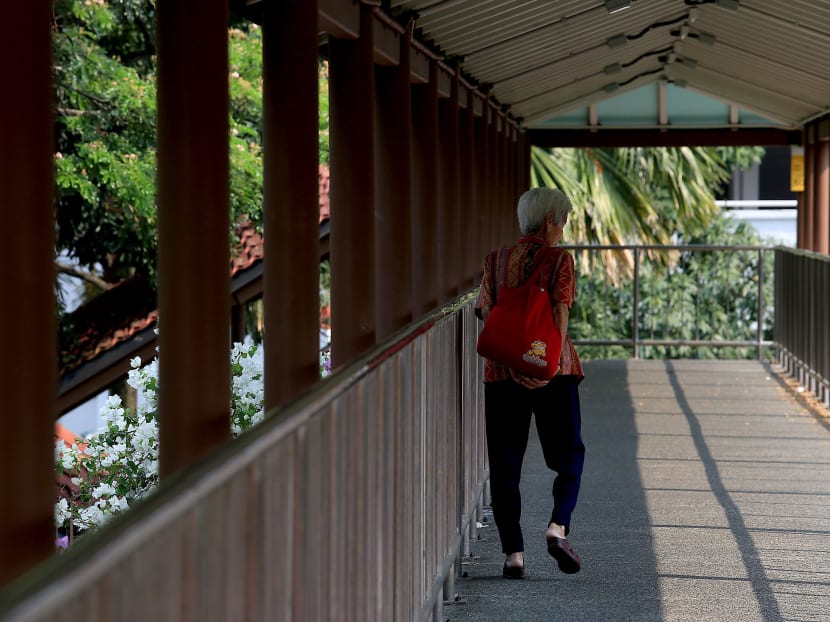213 cases lodged with Commissioner for the Maintenance of Parents in 2014
SINGAPORE — Fewer elderly parents have been requesting for support under the Maintenance of Parents Act, despite the increasing number of elderly people here, according to statistics in the latest report on Ageing Families in Singapore.
SINGAPORE — Fewer elderly parents have been requesting for support under the Maintenance of Parents Act, despite the increasing number of elderly people here, according to statistics in the latest report on Ageing Families in Singapore.
Last year, there were 213 cases lodged with the Commissioner for the Maintenance of Parents, compared to the 257 cases in 2013 and 303 cases in 2012, said the report released by the Ministry of Social and Family Development.
The majority of elderly parents who lodged cases over the last four years from 2011 were between 60 and 79 years old. The number of cases averaged at about 200, but dipped to 153 last year.
One hundred and thirty-two fathers made up about 62 per cent of those who lodged cases last year, compared to 81 mothers. Slightly over half, or 53 per cent, of the cases involved elderly parents who were living with family members.
Meanwhile, the report also showed that there were more elderly residents living on their own among the aged households, which are defined as those with at least one member aged 65 years and above.
The proportion of elderly married couples who are childless or whose children are not living with them rose from 17.7 per cent last year, from 9.2 per cent in 2000.
Elderly residents living alone also saw an increase in proportion from 11.9 per cent from 7.5 per cent over the same period.
At the same time, the proportion of three-generation households has declined. It made up 23.1 per cent of aged households last year, compared to 32.6 per cent in 2000, while nuclear families remained stable at about 25 per cent.
National University of Singapore (NUS) sociologists whom TODAY spoke to noted that one factor leading to more elderly Singaporeans living on their own is their preference for independence.
Associate Professor Paulin Straughan pointed out that older individuals from the “baby boomer” generation are educated, with their own resources and home, which they prefer to hold on to instead of giving it all up to move in with their children.
Wishing to preserve the parent-child relationship by not imposing themselves on their children is another motivating factor.
“Part of it has to do with some kind of understanding and appreciation of how difficult it is for their grown children to make ends meet, to deal with childcare and therefore they don’t want to be a burden,” said Assoc Prof Straughan.
The elderly living on their own can also be viewed positively, added Dr Tan Ern Ser.
“It does not necessarily mean isolation, loneliness, and absence of social support, insofar as the person has close friends or relatives, and be able to enjoy ‘intimacy at a distance’,” he said.







